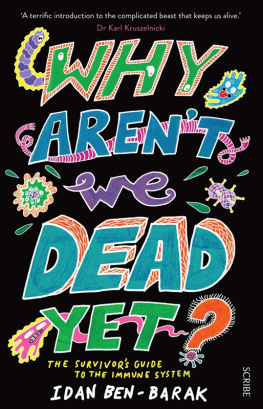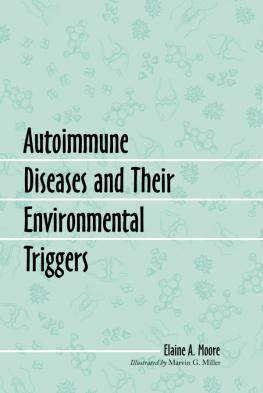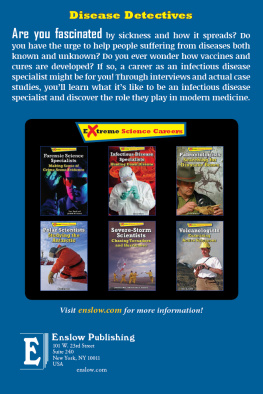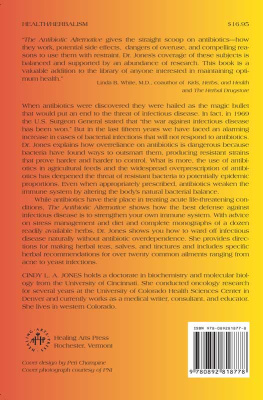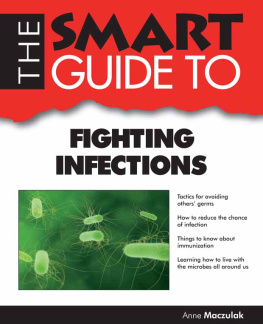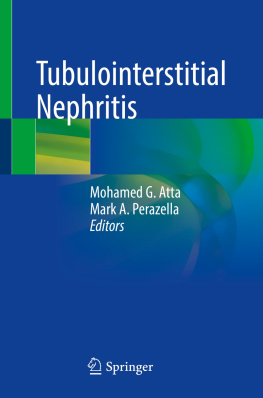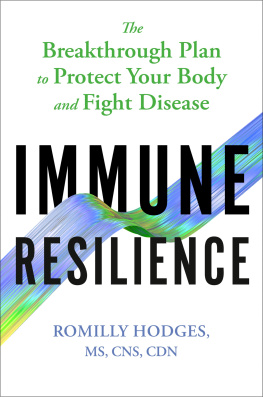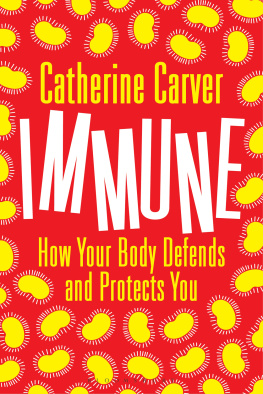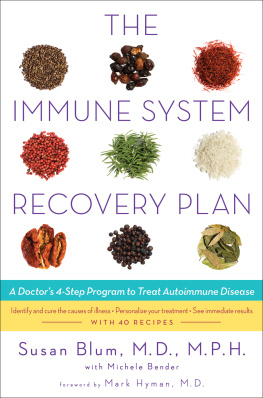
Scribe Publications
WHY ARENT WE DEAD YET?
Idan Ben-Barak holds a BSc in medical science and an MSc in microbiology from the Hebrew University of Jerusalem, and is currently completing a PhD in the history and philosophy of science at the University of Sydney. He lives in Melbourne with his wife and two children. Why Arent We Dead Yet? is his second book.
Scribe Publications Pty Ltd
1820 Edward St, Brunswick, Victoria 3056, Australia
50A Kingsway Place, Sans Walk, London, EC1R 0LU, United Kingdom
First published by Scribe 2014
Copyright Idan Ben-Barak 2014
All rights reserved. Without limiting the rights under copyright reserved above, no part of this publication may be reproduced, stored in or introduced into a retrieval system, or transmitted, in any form or by any means (electronic, mechanical, photocopying, recording or otherwise) without the prior written permission of the publishers of this book.
National Library of Australia
Cataloguing-in-Publication data
Ben-Barak, Idan, author.
Why Arent We Dead Yet?: the survivors guide to the immune system / Idan Ben-Barak.
9781925106077 (Australian edition)
9781922247667 (UK edition)
9781925113297 (e-book)
1. Immune system. 2. Natural immunity. 3. Immunization.
616.079
scribepublications.com.au
scribepublications.co.uk
For Mum
The universe is full of magical things
patiently waiting for our wits to grow sharper.
Eden Phillpotts, A Shadow Passes
Contents
Epilogue:
Introduction
An astounding number of germs lurk invisibly anywhere we look or touch, just waiting for an opportunity to stake a claim to the fabulously abundant lump of warm, soggy protein and energy that is the human body. We may forget theyre there, but TV ads for cleaning products and news reports about the things to be found smeared on door handles, shopping trolleys, computer keyboards, kitchen counters, and pillows help remind us that disease surrounds us at every step. Listening to hygiene advocates, you might be excused for thinking its a wonder anyone is still alive at all.
And it is a wonder. Its a fantastic, perplexing, and troublesome wonder known as the immune system. This is a book about it. But first, a caveat: this book is not going to help you make your health choices more informed, your diet more sustaining, your hair more luxuriously radiant, your youthfulness prolonged, your annual winter flu less miserable, or your credit-card bill more paid. It is also specifically designed to not help you do any better at school. Im personally allergic to useful information, so I have included as little as possible of it here. One of the things I like most about the immune system is that it doesnt require our attention to function. It operates silently in the background, like a ninja cleaning service, noticeable only when things go seriously wrong.
If you do want the lowdown on how to improve your health, here it is: eat well, sleep well, move more, drink in moderation, dont smoke anything legal, vaccinate, and dont be too fussy about dirt. You can check out the Health section of your local bookshop or library for the many, many books that will tell you all of these things in detail.
In terms of actual benefits to your wellbeing, this book might, I hope, make you laugh here and there (which has been clinically shown to be good for you) and perhaps help you to understand a few things and think about them a little more deeply (which probably isnt very good for you at all). Thats about it. Sorry.
Actually, you already understand immunology quite well. Yes, you do; its no use denying it; I can tell by the way youre still breathing. Even if you cant, off the top of your head, tell the difference between antigen and antibody or say what cytokines are for, there are bits of you that are extremely good at telling which is which and what goes where, good at remembering what happened before, and good at knowing what to do when. If you werent, at some level, very good indeed at immunology, youd be dead. Its as simple as that.
So why arent we dead yet?
Any question phrased this broadly can have several sorts of answers. Clearly youre not dead because you havent personally encountered moving trucks, or had speeding bullets inconveniently placed about your person, and so forth. But for the purposes of this book, thats beside the point. I want to look at disease which, after all, is what eventually kills the overwhelming majority of us and specifically at infectious disease, and ask how is it that, with all these horrible, horrible illnesses that can befall us, some of us are not only still alive but can also prance about and do anything other than lie in bed moaning.
That question, too, can be answered on several levels, and each chapter of this book gives a different type of answer to the title question. Together, I hope they provide a somewhat comprehensive overview of the relationship between organism and environment that we call the immune system.
The first chapters answer is: Were not dead yet because each of us has this immune system, see, which is composed of several layers of defence against infection. And Ill take a brief look at the components and mechanisms used by our immune system to keep us up and running.
Thats all well and good, and might well satisfy our curiosity, but saying I just have it; end of story fails to satisfy some people in some circumstances (police, tax officials, and parents spring to mind). They want to know how we came to be in possession of such a thing. Therefore, the second chapters answer is: Were not dead yet because our immune system gradually developed from the moment we were conceived, with the aid of internal and external stimuli,* to its present state. Mothers form a large part of this process youll gain a new perspective on motherhood by the time were done. You have been warned.
[* A nice, innocuous-sounding little word, stimuli, isnt it? Its being used here as a front for some properly disgusting stuff.]
The next chapter takes this answer one step further, beyond the individual body and into the realm of the species and our evolutionary history. In most textbooks and popular health guides, our immune system is presented as manifestly there , a functioning system that humans just sort of have. The popular books may try to teach us how to keep it working, the medical ones will teach the professionals what to do if it stops. At most, a book will contain a description of the development of the immune system throughout our life. This is all well and good, an understandable and commonsensical approach. But I think we could use a bit of a broader perspective, and so, the third chapters answer is: Were not dead yet because our immune system has evolved through the ages, ever since our distant ancestors were little wriggly things themselves, and through innumerable interactions with our (likewise constantly evolving) environment, to create the mind-bogglingly complicated system we have today.
I suppose I could go on to say Were not dead yet because, 14 billion years ago, the universe was created, and but that would be overstepping even the most liberal interpretation of the term immunology. So the fourth chapter will take a different view of our struggle for life and health, and answer: Were not dead yet because people have been finding out things about sickness, health, and immune processes that have given the human race the capability to reduce illness and mortality.
Now, obviously thats a more qualified answer than the rest of them the human race demonstrably survived and thrived before anyone found out anything at all about the nature of health and disease but when you look at the dreadful mortality figures throughout history, theres no question that most of us living today would not be living today if not for medical sciences advances in combating infectious disease, mostly through the discovery and development of antibiotics and vaccines.* Ill be looking into some of the more interesting advances, debates, and errors (oh, yes) that have led the science of immunology to its present state which is nowhere near approaching a definitive conclusion.
Next page
